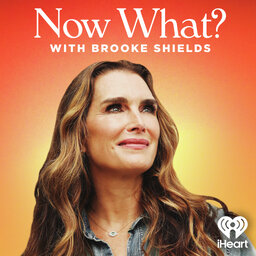Actor, dancer, and Broadway legend Bebe Neuwirth (Chicago, Cheers, Julia) joins the podcast! Brooke and Bebe swap stories about their very different Princeton days and dig into Bebe’s early years on Broadway — including her work with Bob Fosse and the time she lied in an open call (and still got the part!). Bebe shares what it was like to end her first marriage and opens up about the pressure of dancing on Broadway after having two hip replacements.
 Now What? with Brooke Shields
Now What? with Brooke Shields


